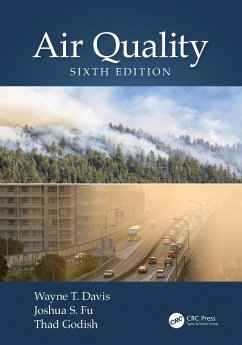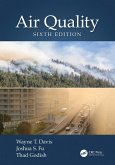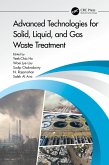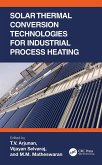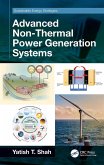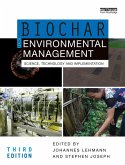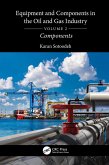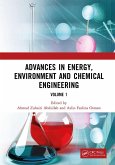48,95 €
48,95 €
inkl. MwSt.
Sofort per Download lieferbar

24 °P sammeln
48,95 €
Als Download kaufen

48,95 €
inkl. MwSt.
Sofort per Download lieferbar

24 °P sammeln
Jetzt verschenken
Alle Infos zum eBook verschenken
48,95 €
inkl. MwSt.
Sofort per Download lieferbar
Alle Infos zum eBook verschenken

24 °P sammeln
- Format: ePub
- Merkliste
- Auf die Merkliste
- Bewerten Bewerten
- Teilen
- Produkt teilen
- Produkterinnerung
- Produkterinnerung

Bitte loggen Sie sich zunächst in Ihr Kundenkonto ein oder registrieren Sie sich bei
bücher.de, um das eBook-Abo tolino select nutzen zu können.
Hier können Sie sich einloggen
Hier können Sie sich einloggen
Sie sind bereits eingeloggt. Klicken Sie auf 2. tolino select Abo, um fortzufahren.

Bitte loggen Sie sich zunächst in Ihr Kundenkonto ein oder registrieren Sie sich bei bücher.de, um das eBook-Abo tolino select nutzen zu können.
This sixth edition provides the latest information, including new technologies, regulations, and air quality management approaches. All areas related to climate change are updated substantially, and includes added information related to global air quality for a better understanding of the worldwide air quality situation.
- Geräte: eReader
- ohne Kopierschutz
- eBook Hilfe
- Größe: 21.34MB
Andere Kunden interessierten sich auch für
![Air Quality (eBook, PDF) Air Quality (eBook, PDF)]() Wayne T. DavisAir Quality (eBook, PDF)48,95 €
Wayne T. DavisAir Quality (eBook, PDF)48,95 €![Advanced Technologies for Solid, Liquid, and Gas Waste Treatment (eBook, ePUB) Advanced Technologies for Solid, Liquid, and Gas Waste Treatment (eBook, ePUB)]() Advanced Technologies for Solid, Liquid, and Gas Waste Treatment (eBook, ePUB)52,95 €
Advanced Technologies for Solid, Liquid, and Gas Waste Treatment (eBook, ePUB)52,95 €![Solar Thermal Conversion Technologies for Industrial Process Heating (eBook, ePUB) Solar Thermal Conversion Technologies for Industrial Process Heating (eBook, ePUB)]() Solar Thermal Conversion Technologies for Industrial Process Heating (eBook, ePUB)120,95 €
Solar Thermal Conversion Technologies for Industrial Process Heating (eBook, ePUB)120,95 €![Advanced Non-Thermal Power Generation Systems (eBook, ePUB) Advanced Non-Thermal Power Generation Systems (eBook, ePUB)]() Yatish T. ShahAdvanced Non-Thermal Power Generation Systems (eBook, ePUB)52,95 €
Yatish T. ShahAdvanced Non-Thermal Power Generation Systems (eBook, ePUB)52,95 €![Biochar for Environmental Management (eBook, ePUB) Biochar for Environmental Management (eBook, ePUB)]() Biochar for Environmental Management (eBook, ePUB)79,95 €
Biochar for Environmental Management (eBook, ePUB)79,95 €![Equipment and Components in the Oil and Gas Industry Volume 2 (eBook, ePUB) Equipment and Components in the Oil and Gas Industry Volume 2 (eBook, ePUB)]() Karan SotoodehEquipment and Components in the Oil and Gas Industry Volume 2 (eBook, ePUB)91,95 €
Karan SotoodehEquipment and Components in the Oil and Gas Industry Volume 2 (eBook, ePUB)91,95 €![Advances in Energy, Environment and Chemical Engineering Volume 1 (eBook, ePUB) Advances in Energy, Environment and Chemical Engineering Volume 1 (eBook, ePUB)]() Advances in Energy, Environment and Chemical Engineering Volume 1 (eBook, ePUB)52,95 €
Advances in Energy, Environment and Chemical Engineering Volume 1 (eBook, ePUB)52,95 €-
-
-
This sixth edition provides the latest information, including new technologies, regulations, and air quality management approaches. All areas related to climate change are updated substantially, and includes added information related to global air quality for a better understanding of the worldwide air quality situation.
Dieser Download kann aus rechtlichen Gründen nur mit Rechnungsadresse in A, B, BG, CY, CZ, D, DK, EW, E, FIN, F, GR, HR, H, IRL, I, LT, L, LR, M, NL, PL, P, R, S, SLO, SK ausgeliefert werden.
Produktdetails
- Produktdetails
- Verlag: Taylor & Francis
- Seitenzahl: 423
- Erscheinungstermin: 23. Februar 2021
- Englisch
- ISBN-13: 9781000346107
- Artikelnr.: 60816956
- Verlag: Taylor & Francis
- Seitenzahl: 423
- Erscheinungstermin: 23. Februar 2021
- Englisch
- ISBN-13: 9781000346107
- Artikelnr.: 60816956
- Herstellerkennzeichnung Die Herstellerinformationen sind derzeit nicht verfügbar.
Wayne T. Davis is the Emeritus Chancellor and Emeritus Dean of the Tickle College of Engineering at University of Tennessee Knoxville (UTK) and retired in 2019. He served as the Associate Dean for research and technology in the college from 2003 to 2008. He is also an Emeritus Professor of civil and environmental engineering. He earned an AB in physics at Pfeiffer University (1969), an MS in physics at Clemson (1971), and an MS in environmental engineering and a PhD in civil engineering at UTK (1973 and 1975, respectively). He has conducted research and teaching in the area of air quality management and pollution control for more than 45 years at UTK, and is the author, coauthor, or editor of numerous research publications, including the Air Pollution Control Engineering Manual (published by John Wiley Publishers) and the graduate textbook Air Pollution: Its Origin and Control (published by Elsevier). He has been involved in numerous projects funded by the US EPA, DOE, ORNL, NSF, DOT, and various state agencies and industrial companies, particularly as related to the monitoring and control of sulfur dioxide, ozone/precursors, and particulate matter. Dr. Davis is a recipient of the Lyman Ripperton Outstanding Professor Award presented by the International Air and Waste Management Association (AWMA), where he is a fellow member; he also received a Lifetime Achievement Award from the Institute of Professional and Environmental Practice (Pittsburgh, Pennsylvania) in 2007. He is also a Board Certified Environmental Engineering Member (BCEEM) of the American Academy of Environmental Engineers and Scientists. Dr. Davis served as chair of the Knox County (Tennessee) Air Pollution Control Board for more than 22 years and served on the State of Tennessee's Air Pollution Control Board for nine years.
Joshua S. Fu is the Tickle Professor in the Department of Civil and Environmental Engineering at the University of Tennessee Knoxville (UTK). He was a scientific applications analyst and software engineer at Lockheed Martin/EPA before he moved to UTK in 2000. He earned a BS in environmental engineering at National Cheng Kung University (1986), an MS in environmental engineering and water resources at UCLA (1994), and a PhD in civil engineering at North Carolina State University (2000). The focus of his research includes air benefit and attainment assessment, emission estimations, climate change impacts on air quality, energy infrastructure and human health, ozone and particulate matter modeling, and international air quality modeling assessment. Additional focus is to utilize artificial intelligence (AI) and data mining techniques on climate change, human health, and mapping global total atmospheric deposition. He has taught courses in the area of air quality management, climate change, and pollution control at UTK, and is the author of numerous research publications and serves as a journal co-editor for the Atmospheric Chemistry and Physics, a journal editor for the Aerosol and Air Quality Research, and served as a journal associate editor for the Journal of the Air & Waste Management Association. He has published more than 150 referred journal articles. One of his publications on air quality has been recognized by Elsevier as one of the most cited articles in Atmospheric Environment from 2007 to 2012. He has been a principal investigator and coinvestigator for numerous projects funded by the CDC, DHS, DOE, US DOT, LLNL, NASA, NOAA, NSF, ORNL, US EPA, USDA, various state agencies, and industrial companies. He is a recipient of the Lyman Ripperton Outstanding Professor Award presented by the International Air and Waste Management Association (AWMA). He has received numerous research awards from the Chancellor, College of Engineering, and his department at UTK and ORNL. He is also a Board Certified Environmental Engineering Member (BCEEM) of the American Academy of Environmental Engineers and Scientists. He is vice chair of the WMO's MMF-GTAD Initiative Steering Committee. He is actively involved in the UN ECE Task Force Hemispheric Transport of Air Pollution, Model Intercomparison Study in Asia, and is a member of the Arctic Council's Arctic Monitoring and Assessment Programme (AMAP) Short-Lived Climate Forcers (SLCF) Expert Group. He also serves on the Knox County (Tennessee) Air Pollution Control Board and the State of Tennessee Air Pollution Control Board.
Thad Godish, PhD, CIH, was a professor of natural resources and environmental management at Ball State University, Muncie, IN, USA, and a certified industrial hygienist. He received his PhD at Penn State University, State College, PA, USA, in 1969. He was the author or coauthor of Air Quality, 1st-4th eds. (2003), Indoor Environmental Quality (2000), Sick Buildings: Definition and Diagnosis (1995), and Indoor Air Pollution Control (1989). His academic and research focus was hazardous materials/environments health and safety issues. As an industrial hygienist, his primary concern was to protect workers who must respond to a variety of hazardous materials issues.
Professor Godish died on June 20, 2009, at the age of 67, prior to initiation of preparation for the fifth and later editions of Air Quality.
Joshua S. Fu is the Tickle Professor in the Department of Civil and Environmental Engineering at the University of Tennessee Knoxville (UTK). He was a scientific applications analyst and software engineer at Lockheed Martin/EPA before he moved to UTK in 2000. He earned a BS in environmental engineering at National Cheng Kung University (1986), an MS in environmental engineering and water resources at UCLA (1994), and a PhD in civil engineering at North Carolina State University (2000). The focus of his research includes air benefit and attainment assessment, emission estimations, climate change impacts on air quality, energy infrastructure and human health, ozone and particulate matter modeling, and international air quality modeling assessment. Additional focus is to utilize artificial intelligence (AI) and data mining techniques on climate change, human health, and mapping global total atmospheric deposition. He has taught courses in the area of air quality management, climate change, and pollution control at UTK, and is the author of numerous research publications and serves as a journal co-editor for the Atmospheric Chemistry and Physics, a journal editor for the Aerosol and Air Quality Research, and served as a journal associate editor for the Journal of the Air & Waste Management Association. He has published more than 150 referred journal articles. One of his publications on air quality has been recognized by Elsevier as one of the most cited articles in Atmospheric Environment from 2007 to 2012. He has been a principal investigator and coinvestigator for numerous projects funded by the CDC, DHS, DOE, US DOT, LLNL, NASA, NOAA, NSF, ORNL, US EPA, USDA, various state agencies, and industrial companies. He is a recipient of the Lyman Ripperton Outstanding Professor Award presented by the International Air and Waste Management Association (AWMA). He has received numerous research awards from the Chancellor, College of Engineering, and his department at UTK and ORNL. He is also a Board Certified Environmental Engineering Member (BCEEM) of the American Academy of Environmental Engineers and Scientists. He is vice chair of the WMO's MMF-GTAD Initiative Steering Committee. He is actively involved in the UN ECE Task Force Hemispheric Transport of Air Pollution, Model Intercomparison Study in Asia, and is a member of the Arctic Council's Arctic Monitoring and Assessment Programme (AMAP) Short-Lived Climate Forcers (SLCF) Expert Group. He also serves on the Knox County (Tennessee) Air Pollution Control Board and the State of Tennessee Air Pollution Control Board.
Thad Godish, PhD, CIH, was a professor of natural resources and environmental management at Ball State University, Muncie, IN, USA, and a certified industrial hygienist. He received his PhD at Penn State University, State College, PA, USA, in 1969. He was the author or coauthor of Air Quality, 1st-4th eds. (2003), Indoor Environmental Quality (2000), Sick Buildings: Definition and Diagnosis (1995), and Indoor Air Pollution Control (1989). His academic and research focus was hazardous materials/environments health and safety issues. As an industrial hygienist, his primary concern was to protect workers who must respond to a variety of hazardous materials issues.
Professor Godish died on June 20, 2009, at the age of 67, prior to initiation of preparation for the fifth and later editions of Air Quality.
1. Atmosphere 2. Atmospheric Pollution and Pollutants 3. Atmospheric
Dispersion, Transport, and Deposition 4. Atmospheric Effects 5. Health
Effects 6. Welfare Effect 7. Air Quality and Emissions Assessment 8.
Regulation and Public Policy 9. Control of Motor Vehicle Emissions 10.
Control of Emissions from Stationary Sources 11. Indoor Air Quality 12.
Environmental Noise
Dispersion, Transport, and Deposition 4. Atmospheric Effects 5. Health
Effects 6. Welfare Effect 7. Air Quality and Emissions Assessment 8.
Regulation and Public Policy 9. Control of Motor Vehicle Emissions 10.
Control of Emissions from Stationary Sources 11. Indoor Air Quality 12.
Environmental Noise
1. Atmosphere 2. Atmospheric Pollution and Pollutants 3. Atmospheric
Dispersion, Transport, and Deposition 4. Atmospheric Effects 5. Health
Effects 6. Welfare Effect 7. Air Quality and Emissions Assessment 8.
Regulation and Public Policy 9. Control of Motor Vehicle Emissions 10.
Control of Emissions from Stationary Sources 11. Indoor Air Quality 12.
Environmental Noise
Dispersion, Transport, and Deposition 4. Atmospheric Effects 5. Health
Effects 6. Welfare Effect 7. Air Quality and Emissions Assessment 8.
Regulation and Public Policy 9. Control of Motor Vehicle Emissions 10.
Control of Emissions from Stationary Sources 11. Indoor Air Quality 12.
Environmental Noise
